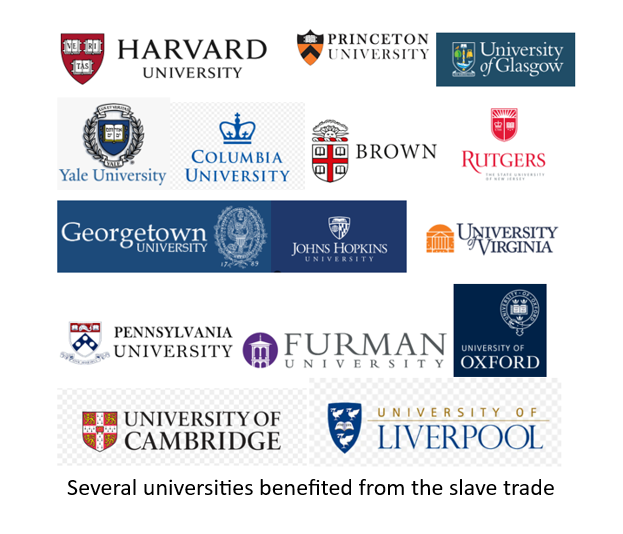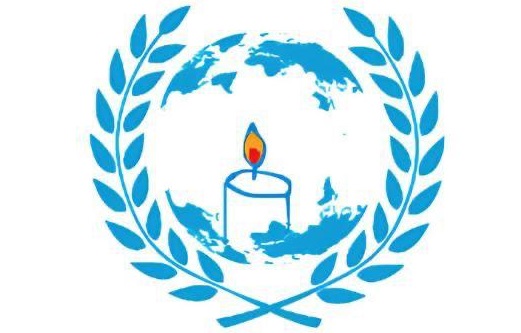Amends as a Fiduciary and Moral Duty
WCM is a unique opportunity for governments that have historically accumulated wealth at the expense of people of color; corporations that built their empires through colonization, particularly those involved in the slave trade; universities and colleges that participated in slavery, as well as the Church and extractive industries that gained significant wealth from the suffering of Blacks and people of color. We are actively engaging with those responsible for addressing the wrongs of the past to support our atonement initiative.

WCM is a unique chance for the governments and corporations that benefited from slavery and colonization to respond appropriately.
__________________________________________________
Refusing to address unatoned-for crimes looks like complicity, gives the appearance of supporting the actions of predecessors, and delegitimizes the emotional wounds of victims' descendants.The scale of damage caused by colonization and the trans-Atlantic slave trade is overwhelming. For centuries, colonial powers championed colonization, upheld the doctrine of racism and genocide, and, through the process, gained historic wealth and fortune over the heads of colored people.
Western governments accumulated significant wealth through colonization for centuries by exploiting colonized territories’ natural resources and labor. They often employed forced labor systems, such as slavery, to achieve this. As a result, they gained historic wealth and prosperity at the expense of marginalized people, contributing significantly to Western nations’ economic development.
America’s first big business – its empire of cotton revolved around slavery, with torture, violence, and family separations used to maximize profits.
To grow the cotton that would clothe the world and fuel global industrialization, countless young, enslaved men and women — the children of stolen ancestors were legally treated as property —bid and sold at auctions and forcibly retrained and resettled into labor camps to become America’s most efficient laborers.
During colonial times, enslaved Africans were viewed as America’s most valuable financial asset. Banks financed the trade of crops cultivated by enslaved individuals, lent money based on their value, and even seized and sold them during foreclosure proceedings. Insurance companies offered policies that compensated slave owners for financial losses incurred when their enslaved individuals passed away. Moreover, America’s first bond market was backed by the value of enslaved people.
While cotton profits contributed to making the United States one of the leading economies in the world, the ownership of enslaved individuals significantly increased wealth for plantation owners and overseers. These individuals engaged with a network of bankers, taking out lines of credit and using enslaved people as collateral for mortgages, business transactions, or debts.
Despite promoting theories of racial inferiority, many universities received funding from the slave economy and from slave owners who donated or became trustees. Others sold enslaved people to generate capital. Enslaved people built academic buildings, residential halls, and campuses and cared for students and professors. It was common practice for wealthy students to bring enslaved individuals with them to college.

The Church not only promulgated an ideological apparatus to support race-based slavery but it also was directly involved in trafficking and enslavement.
To adequately respond to historical crimes, those responsible for atoning for these sins must recognize that it is both their moral and fiduciary duty.
Whether we’re talking about enslaved people working in cotton, tobacco, sugarcane, or rice fields, enslaved dock workers, or domestic servants, slavery was everywhere. Before the Civil War, most railways in America were built using slave labor. Enslaved people cut down trees for timber used in making naval stores and shipbuilding. Colonists exported some of the lumber to Great Britain, where they were used to produce finished goods that were traded for enslaved people.
The slavery economy of the US was deeply tied financially to key European nations that were also involved in the human trade, especially Britain – the leading trafficker of slaves across the Atlantic. Britain benefited from the slave trade by importing slave-produced goods like sugar, tobacco, cotton, coffee, chocolate, and dyestuffs. These goods were consumed in large quantities in Britain and helped fuel industrialization. This explains why most of the credit powering the American slave economy came from the London money market, with UK banks providing capital to plantations to purchase land and enslaved people.
The Church established an ideological framework that supported race-based slavery and was directly involved in the trafficking and enslavement of people. It baptized millions of enslaved individuals and exploited their labor to accumulate immense wealth. The Church justified slavery as a means of evangelization; however, this rationale did not protect those who were enslaved from the exploitation, brutality, and dehumanization that were inherent to the system of chattel slavery.

WCM is a chance for elite universities and colleges – and many others with financial links to slavery to respond appropriately.
__________________________________________________________________________________
This unique opportunity to make amends also applies to major multinational oil, gas and mining companies that enriched colonial masters and fundamentally reshaped the world’s poorest countries.
Historical Extractive Industries
Linked to Colonization
Colonization is the practice of controlling another country or area and exploiting its people and resources.
Colonial powers exploited vast mineral wealth in their colonies, including gold, diamonds, copper, gas, oil, and timber (not exclusively). In certain instances, extractive industries emerged through foreign colonial conquest; other times, they came about through nocturnal negotiations and alliances with local leaders.
Slavery was common in many of these colonies. Indigenous populations were often forced to work in harsh conditions in these extractive industries, contributing to widespread exploitation, suffering, and death.
Extractive activities often result in significant environmental degradation in colonized regions, including deforestation, pollution, and land degradation.
In many parts of the world, Extractive Industries cared less about the development of Indigenous populations and more about transferring as much wealth as possible abroad.
Though some oil, gas, and mining companies often build infrastructure like railroads and ports, these infrastructures are specifically designed to facilitate the transportation of vast quantities of minerals and other resources from inland mines to coastal ports to be ferried to their home countries.
The economic systems established during colonization, which were heavily reliant on extractive industries, often left lasting inequalities in post-colonial societies. Former colonies continued to primarily export raw materials while developed nations consumed them.
Failing to confront unaddressed crimes can be seen as complicity and undermines the emotional wounds experienced by the descendants of victims. Denying responsibility in response to valid accusations may lead those who have historically benefited from slavery to appear as if they are endorsing the actions of their predecessors.
WCM understands that a sincere, unprompted apology is more impactful for affected communities. However, we know that words alone are meaningless without accompanying actions. We are actively engaging with descendant communities and those responsible for addressing the wrongs of the past to support our atonement initiatives.
We firmly believe this approach is more restorative for everyone involved and fosters the potential to turn opponents into allies.
